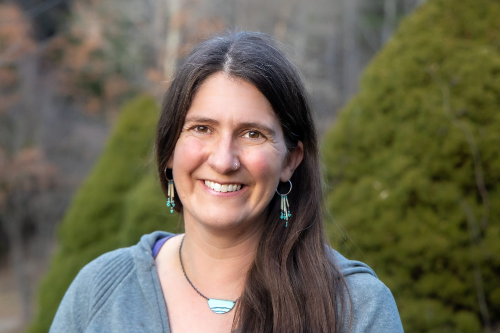I’m falling in-love all over again with the story of the unnamed woman in Luke 7, who enters the Pharisees’ house with heart intent on one audience… the One able to forgive. This is a story of 3 distinctly different people: one, a woman known only by her sexual immorality, one, a God who put on the skin of those He had created, and one, a man who placed all his value in his upstanding performance. This is a story of redemption, a story of a God who sees beyond, and a story of a hardened heart, who God sought to expose and mend. Enter with me into the shame and deliverance of one whose name is only known by those long past, and whose saga engages us today.
“Now one of the Pharisees was requesting Him to dine with him, and He entered the Pharisee’s house and reclined at the table. And there was a woman in the city who was a sinner (other translations state that she was sexually immoral); and when she learned that He was reclining at the table in the Pharisee’s house, she brought an alabaster vial of perfume, and standing behind Him at His feet, weeping, she began to wet His feet with her tears, and kept wiping them with the hair of her head, and kissing His feet and anointing Him with the perfume. Now when the Pharisee who had invited Him saw this, he said to himself, ‘If this man were a prophet He would know who and what sort of person this woman is who is touching Him, that she is a sinner.” (Luke 7:36-39)
This woman carries her shame with her, like the letter A on Hester Pryne’s garment. She is the gossip of her hometown, the woman that mothers shield their children’s eyes from and fathers warn their sons about. She feels worthless and violated, her dignity stolen and sacrificed. She is a public mockery and an isolated soul. I know this because I once was her. And when you have lived a life of debauchery, the way you process the world around you is through the lens of your own shame.
She risks being exploited and ostracized to weep at the feet of Jesus. She ignores the looks of disdain from the one whose hospitality the King of kings has accepted. She is only here to see Him. And for Him to see her.
But Jesus not only sees her, He sees him, as well… the Pharisee, the one who has invited him to dine.
“Simon, I have something to say to you.” He begins. He proves that He is indeed a prophet, by exposing the man’s heart through a story about 2 debtors who have been forgiven. And then He does something odd. He praises the woman who others have so long rejected. He exalts her faith and her love, her act of sacrifice to meet Him. And He commends her, He wipes her slate clean of her former crimes through 5 simple words “Your sins have been forgiven.” (vs. 48)
I treasure the fact that this woman has not even asked for His forgiveness. I reminisce of a moment in my own life, soon after meeting my husband and coming to Christ, which occurred almost simultaneously, that I cried so violently and exposed all of my darkest secrets. I did not ask for his forgiveness, but I longed for it. I longed for his acceptance and for someone else to know all of the shame I had brought on myself and love me just the same. I did not feel worthy to beg his forgiveness. But he held me, he listened and he forgave. So I married him. I wonder how my life would be different if he had turned in disgust, as my confession merited. Instead, he showed me Jesus.
This woman comes, knowing her deepest need is the acceptance of this One, the Savior, and that if anyone Is loving enough to grant it, it must be Him. So she comes, weeping so violently that her tears were enough to wash the dirt off His glorious feet. And He holds her heart. He welcomes her shame and washes her free of it.
This story is about a woman who is set free and forgiven, whose life becomes a testimony to us, a couple thousand years later. But it is also a story of a God who sees. He is not ashamed of our shame. He cleared us of it at the Cross. He is not a God who gives brownie-points and merit-badges. He is not a God who judges us based on moral performance. And we, Christians, ought to live free of our shame and bondage, as well.
This is also a story of a God who showed mercy to a Pharisee. He accepted this invitation, knowing that He would be exposing a hardened heart, who had assumed position in the Kingdom of heaven, based on his outstanding behavior. And Jesus exploits him for it. “Do you see this woman? I entered your house; you gave Me no water for My feet, but she has wet My feet with her tears and wiped them with her hair. You gave Me no kiss; but she, since the time I came in, has not ceased to kiss My feet. You did not anoint My head with oil, but she anointed My feet with perfume. For this reason I say to you, her sins, which are many, have been forgiven, for she loved much; but he who is forgiven little, loves little” (vs. 44-46).
Each one of us is a different character in this story and sometimes we play many characters in the story. I have been both the Pharisee and I have been the sinner lady… and by the supernatural grace of God, I have also seen people like Jesus does and welcomed them as Image Bearers of the Most High, rather than the mess of a human that we all really are.
Jesus invites all. He invites this woman, with all her baggage and soul-scars into the Kingdom and He invites the Pharisee into a way of seeing beyond, to the worth of a human beyond what they do or have done.
And this is a story of redemption. Later on in the story of Jesus, we see another woman, Mary, who also never asked Jesus for a thing, breaking an expensive Alabaster jar of pure Nard (perfume) and anointing Him for burial. I cannot help but wonder if Mary knows that she is not the first to perform this act of worship… if she knows that she bears the same skin as this exposed and forgiven sinner woman, and if she is, in doing so, acknowledging her own glorious forgiveness.
Jesus is a God who redeems. He not only takes the broken, but He makes it beautiful. In my own life story, as that of the exposed sinner woman, who was forgiven much, I see that He has also made me one who loves much as a result. This is redemption. The love truncates the shame. I see that He has invited me as one who can live without shame, and bear with those who still carry their’s around like a dead and rotting animal, slung on their side. He makes me see in ways that I could not if I had not felt their pain and suffering. And I am undone by the Majesty and Holiness of a God who not only forgives, but invites us to dine with Him at the heavenly feast… and shows us the way to see.
We are not called to good performance, we are called to love and holiness. Holiness is not a way of earning favor, it’s a way of allowing us to become empty and full… empty of ourselves and our frailties, our scorn and our defilement, our self-righteousness and our self-sufficiency… and to become full of a God Who recklessly loves the world around Him, with all of it’s brokenness, and is writing us a new story. And His banner over us is Love!
Space 2-20-16


